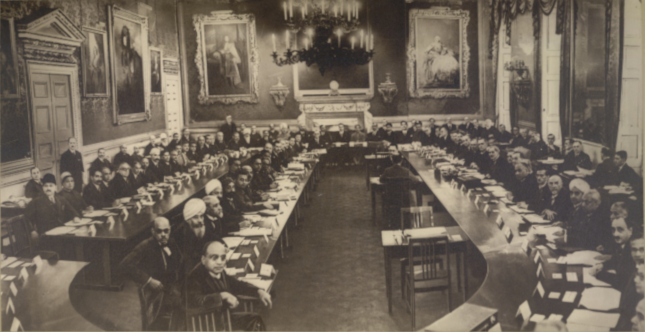Third Round Table Conference: A Failed Attempt at Constitutional Consensus
History Indian HistoryPosted by NewAdmin on 2025-02-11 08:46:30 |
Share: Facebook | Twitter | Whatsapp | Linkedin Visits: 31

The Third Round Table Conference was held in London between November 17 and December 24, 1932, as part of the series of discussions initiated by the British government to determine the constitutional future of India. Unlike the previous two conferences, this session had limited participation and failed to make a significant impact on India's political landscape.
By the time the third conference was convened, the political environment in India had changed significantly. The Indian National Congress, which had participated in the Second Round Table Conference through Mahatma Gandhi, boycotted the third session. The Congress had resumed the Civil Disobedience Movement after the failure of the second conference and its relationship with the British government had deteriorated further. Gandhi was in prison during this time, and most Congress leaders were either arrested or not willing to engage in negotiations with the British. As a result, the third conference lacked the presence of the most influential nationalist leaders.
The participants of the Third Round Table Conference included representatives from the British government, Indian princely states, and some minority groups. However, the absence of the Congress, which was the most prominent political force in India, made the discussions largely ineffective. The conference focused on finalizing proposals for a new constitutional framework, particularly addressing the communal representation issue and the distribution of powers between the central and provincial governments.
Despite the limited participation, the British government proceeded with drafting a constitutional reform plan based on the discussions from all three Round Table Conferences. These discussions eventually led to the Government of India Act of 1935, which introduced significant administrative and political changes, including provincial autonomy and the expansion of the electorate. However, the Act still kept India under British control and did not meet the demands for complete self-rule.
The Third Round Table Conference is often considered a failed attempt to bring about meaningful reforms, as it did not achieve the desired consensus among Indian political groups. The absence of the Indian National Congress made it clear that any constitutional changes imposed without their participation would not gain widespread acceptance. The conference further demonstrated the deep political divisions in India, with different communities and groups holding conflicting views on governance and representation. Ultimately, the lack of substantial progress in these discussions strengthened the Indian freedom movement, pushing the nationalist leadership to intensify their demand for complete independence from British rule.
Search
Categories
Recent News
- Bengaluru Metro's Pink Line Expansion: A Breath of Fresh Air for Commuters
- Ghana's Youth Drug Crisis: A National Tragedy
- India's Services Sector Soars: A Boost for the Economy
- Gold Bond Investors Face New Tax Reality
- Bengaluru Colleges Face Uncertain Future: The Looming Fee Hike Crisis
- Anna University Convocation: Minister's Absence Sparks Speculation
- GATE 2026: Countdown to the Crucial Exam
- Sisters' Tragic Fall: A Shocking Wake-Up Call for Ghaziabad